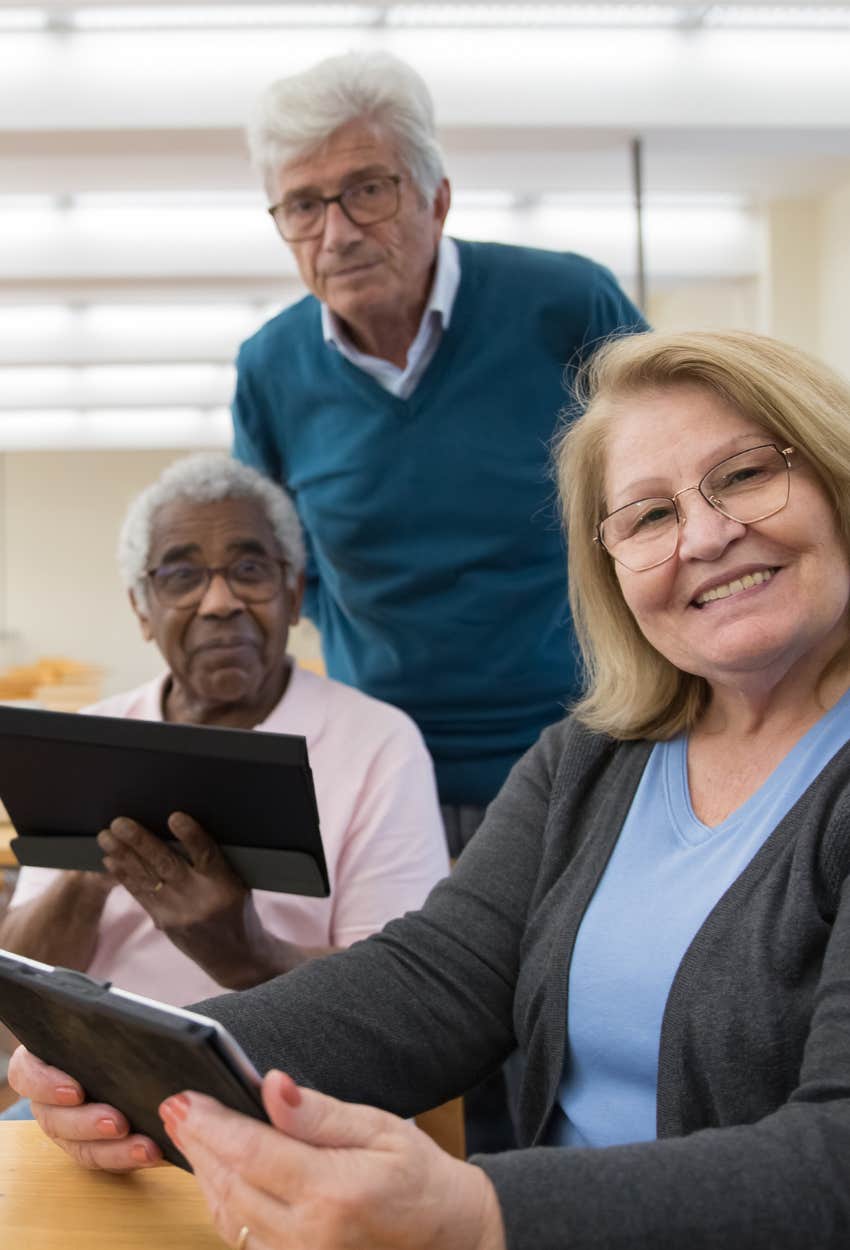People Who Choose To Do This Often Frustrating Thing Stay Exceptionally Mentally Strong Into Their 50s & Beyond
It's all about keeping your brain young and active.
 Anna Shvets from Pexels | Canva Pro
Anna Shvets from Pexels | Canva Pro The prospect of getting older is frightening to many of us, and cognitive decline, loneliness, and depression are what scare many of us most, especially as rates of all three continue increasing. Luckily, though, we have a lot more control over the aging of our brains than many of us realize. And two new studies from the University of California show that protecting our grey matter might be as simple as staying intellectually curious as we age.
New research found that learning new skills helps keep people mentally sharp into old age.
Findings were just published from two overlapping studies at the University of California, Riverside, showing that learning new skills can help substantially fight back against loneliness and depression, two epidemics among senior citizens that can have a cascade of negative impacts, including greater risk of dementia.
Of course, learning new things is often no picnic. Taking up a sport, learning a language, or digging into a new craft can be deeply annoying as we struggle to get our sea legs in our new pursuit. But that's precisely where the benefits lie, it turns out.
“Learning can be difficult and uncomfortable in the short-term," Rachel Wu, a UCR psychologist and one of the study's authors, said. "But that short-term discomfort actually helps protect us in the long run."
It's all part of neuroplasticity, the ways our brains are constantly changing from the moment we're born to the moment we pass. As we get older, that constant change becomes more of a "use it or lose it" situation, and learning new things, no matter how frustrating, helps keep us on the right side of that equation.
The pandemic provided major insights into the benefits of learning new skills on brain health.
The first part of UCR's research was based on perhaps the greatest laboratory for this theory yet: the pandemic. Many of us took up new skills during the isolation that ensued (sourdough bread, anyone?), and the data showed that those who did weathered the extraordinary stress of those lockdown periods far better than those who didn't.
That study divided subjects into two groups: those 19-49 and those 50 and older. Both groups were asked to report how much time they spent learning new skills during lockdown, and then to rate their emotional state.
 Kampus Production | Pexels | Canva Pro
Kampus Production | Pexels | Canva Pro
A pattern quickly emerged. “People who were actively learning fared better in terms of mental health outcomes," said another of the study's authors, former UCR graduate student Lillian Azer, "especially older adults who might otherwise have been more vulnerable to isolation and stress."
As one of many who jumped on the sourdough bread bandwagon in 2020, I can tell you that the process of learning to make it was deeply annoying, and five years later, I have STILL not quite gotten the hang of it. But I feel confident that without that daily, ritualized puzzle during those dark times, I absolutely would have bludgeoned my roommate to death with the cast-iron Dutch oven in which I baked the bread in question. You could say it saved both our lives!
Learning new things was protective against depression, loneliness, and the upheavals of change.
The positive impact of learning new skills in 2020 was found to be even more pronounced in elderly people, who were, of course, the most susceptible to all the negative impacts of that time. And researchers found it was also protective against one of the bigger problems elderly people face: the way change affects them.
It's a bitter irony, for example, that it is often the case that the upheaval of moving an elderly person to a new living arrangement so they can get the help they need often ends up exacerbating the problems for which they needed help in the first place, especially in the case of cognitive decline.
I have an elderly aunt who just moved to an assisted living facility for active seniors, and while she's still sharp as a tack as 88-year-olds go, the upheaval has definitely worsened her memory loss. You can tell every time you speak with her.
But learning new skills, the research found, is protective against this too, but with one key caveat: The benefits aren't immediate, but rather over the long term. Participants who challenged themselves with new pursuits didn't necessarily suddenly wake up happier.
But when interviewed a year down the road, they reported better stress-management skills, lower depression, and reduced loneliness, all of which are protective against things like dementia, too. Which reminds me that I need to urge my auntie to get back to the yoga classes in her old folks home, and that I should probably sign up for a bread-baking class or something myself!
John Sundholm is a writer, editor, and video personality with 20 years of experience in media and entertainment. He covers culture, mental health, and human interest topics.

